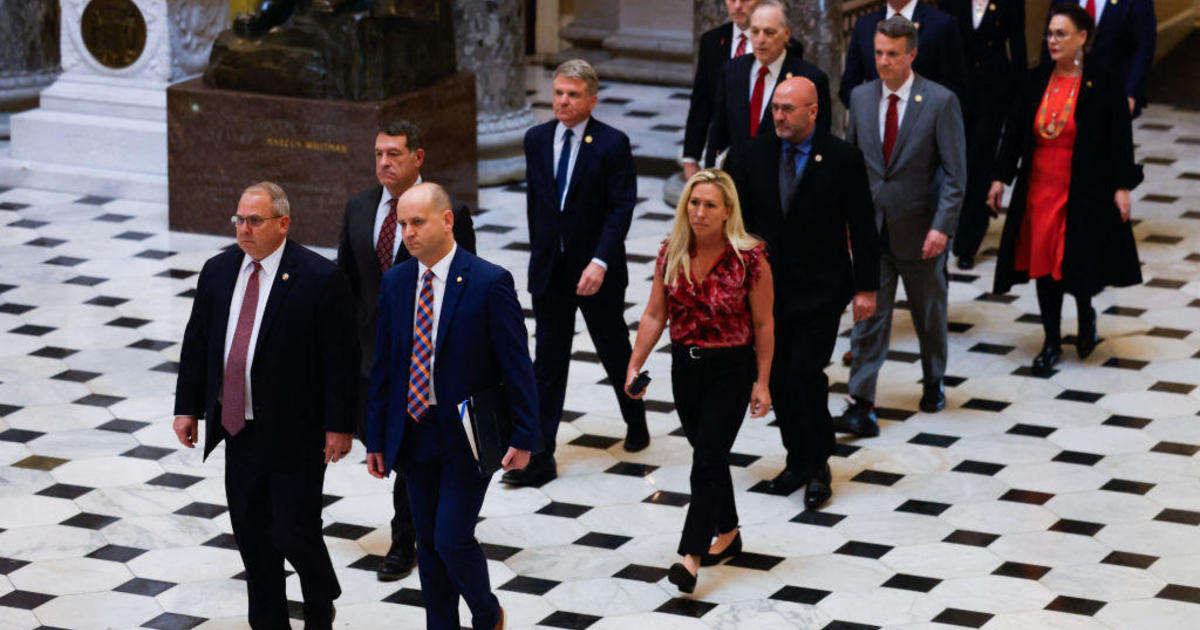White House National Security Council to reduce staffing by a third
By February, the White House National Security Council (NSC), which is the executive branch office forum for national security, military and foreign policy issues, will be reduced to its lowest staffing levels in nearly twenty years.
President Trump's national security adviser, Robert O'Brien recently told NPR, "We'll probably have about 60 to 70 staffers who've gone back to their home agencies." That will effectively downsize the NSC by nearly a third from the staffing levels when O'Brien took the helm in September, bringing the total to just over 100 people.
The council is composed of employees on rotation from various national security agencies such as the State Department, Central Intelligence Agency, and Defense Department. Since its establishment in 1947, the NSC has helped presidents coordinate White House policy and responses to the nation's most pressing international issues, ranging from the Cuban Missile Crisis, the 9/11 terror attacks and issues of war.
O'Brien is Mr. Trump's fourth national security adviser, succeeding John Bolton. This administration has had no shortage of foreign policy challenges: the nuclear aspirations of North Korea and Iran, the decisions to kill ISIS leader Abu Bakr al-Baghdadi and Iranian military leader Qassem Soleimani, the navigation of the trade dispute with China, and determining troop levels in Afghanistan.
Despite these challenges, the staff reductions are intentional. When O'Brien was taking over the NSC, he penned a Washington Post op-ed in which he committed to reduce the NSC by 174 policy positions, arguing that the council's objective is to "coordinate policy rather than run it." He said that the agency had "ballooned" under President Obama, when George W. Bush had half as many on staff, even with the prosecution of two wars in Iraq and Afghanistan.
But the executive council has also been in the spotlight recently because of the impeachment inquiry of President Trump. Current and former staffers, such as Ukraine expert Lieutenant Colonel Alexander Vindman and Fiona Hill, the former top adviser on Russia and European affairs, have offered testimony that was critical of the president. Vindman, who still works at the National Security Council, even drew the ire of the White House Twitter account.
One administration official told CBS News that in addition to the effort to slim down a "bloated" agency, the reduction is also meant to prevent leaks like the one by an anonymous whistleblower that lead to Mr. Trump's impeachment.
O'Brien has publicly maintained that the reductions will eliminate redundancy in foreign policy processes. Under the Obama administration, the NSC "bloated to like 236 people from – up from 100 in the Bush administration," he told "Face the Nation" host Margaret Brennan in November, adding that "we don't need to recreate the Department of Defense, the Department of State, the Department of Homeland Security over at the White House."
Ned Price, an NSC staffer during the Obama administration, argues that the Obama administration's expansion of the NSC was justified. "When President Obama came into office, he combined the Homeland Security Council staff and the National Security Council staff, into a single national security staff, and that accounted for, at least on paper, a large growth in the size of the National Security Council," Price explained.
Price also said that now, the world is more complex, and so are the threats facing the U.S., noting the array of international crises the U.S. has faced: the Ebola epidemic, the rise of ISIS, and the financial collapse of 2009.
Those disparate threats call for an NSC staff "that was able to adequately handle a large number of challenges successive administrations were forced to confront," Price said.
The NSC "is consistently one of the most overworked, overtaxed, overburdened, set of national security professionals, certainly within the executive branch and perhaps within all of the U.S. government," he added.
Price warned that this shrinkage means "there's going to be difficult choices to be made" adding that the NSC "won't be able to do and oversee the same number and complexity of challenges that it did before."
Tom Donilon, who served as National Security Adviser during the Obama administration, told the host of Intelligence Matters, Michael Morell, that, if anything, he would add more technological expertise to the NSC. "If I were back reorganizing the National Security Council right now, I would have technology at the table," Donilon explained. "You really can't manage national security, going forward, without having some more expertise and more fluency in technology than we've had to date."
But Michael Anton, a former NSC spokesman who served in both the Bush and Trump administrations, said that the Bush had "fewer directorates," and noted that "each directorate had fewer people."
Anton also questioned some of the decisions to expand the staff levels between the Bush and Obama administrations. As an example, he pointed out that under Mr. Bush, the Middle East directorate of the NSC included all of the Arabic-speaking countries including North African countries. After he left, under Mr. Obama, the Africa directorate absorbed the North African countries, but by the time he returned in 2017, Anton said that "the Middle East directorate, even though it lost countries…was much larger."
He thinks that a smaller NSC "will be easier to manage" with "clearer lines of authority, clearer lines of who's responsible for what, clearer expectations among the staff."
The NSC has also experienced some unplanned turnover. Just last week, Andrew Peek, one of the NSC's top Russia advisers, was put on administrative leave.
When asked by Margaret Brennan if Lt. Col. Vindman would rotate out of the NSC, O'Brien said, "There will be a point for everybody who's detailed there… that their detail will come to an end."
The NSC declined a request for comment.



